


CONN E CTING AND CAMPUS

Since 2004
Since 2004, the Sundborg Center for Community Engagement (CCE) has connected











Since 2004
Since 2004, the Sundborg Center for Community Engagement (CCE) has connected






Often, we understand it to mean practices that bring us into harmony with the earth. Yet, sustainability also means to maintain a process over time. At the Sundborg Center, we embrace both definitions.
In March, we celebrated our 20th year of connecting campus and community. These two decades have taught us many lessons. Perhaps the most profound lesson that guides our work is the vital importance of trusting and sustainable partnerships. This report highlights a few of these partnerships that unite schools, local organizations, community leaders and residents with hundreds of Seattle University faculty, staff and students.
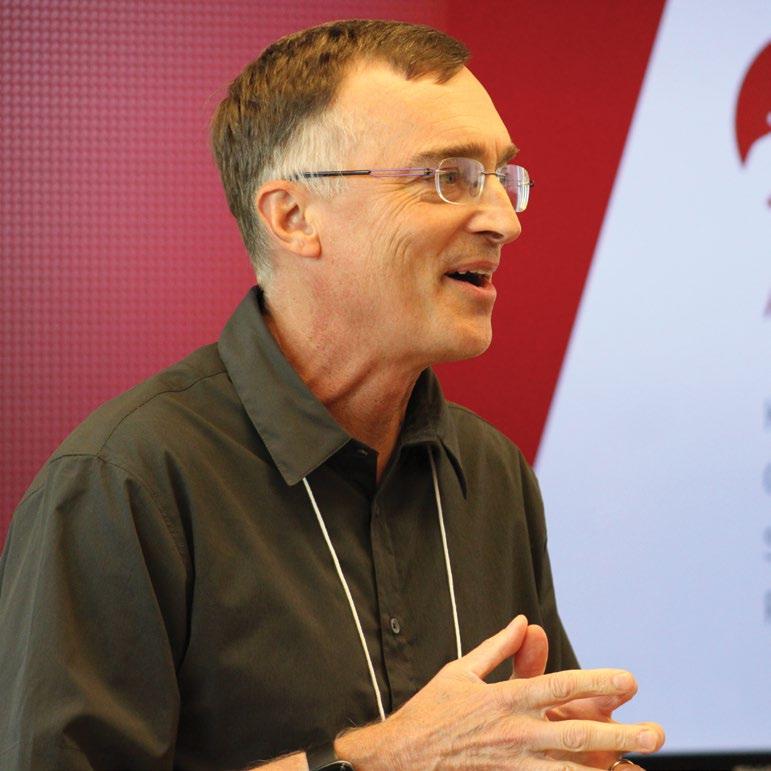
While we pause to celebrate this milestone, we have so much more to do. We are so excited for the next chapter of the Center’s work including:
• Revolutionizing the university’s curriculum: This year the Sundborg Center is partnering with a cohort of faculty to create a signature seminar that offers all incoming first-year and transfer students an opportunity to understand Seattle’s strengths and its challenges, while also learning about the university and its many student services. Once developed, this seminar will engage 1,500 students per year in 60 distinct course sections.
• Welcoming Change Makers to campus: As part of the Seattle University Youth Initiative, the Change Makers program offers college preparatory activities to Garfield High School students along with a commitment of full tuition to attend Seattle University for qualifying scholars. This academic year the first cohort of Change Makers will graduate from high school. We cannot wait to welcome them to campus in fall 2025.
• Maximizing our impact. To enhance our ability for making data-informed decisions, we recently hired a full-time Data Systems Manager and identified three Seattle University faculty members to serve as the Center’s evaluation team. This will significantly enhance our ability to track progress, pursue continuous learning and measure our impact.
Regardless of whether you have partnered with us for 20 years or just a few months, we appreciate you joining us to pursue a more equitable and compassionate world. Here’s to another 20 years of hope-filled connections that unite campus and community.
With warm regards,
Kent Koth Executive Director, Sundborg Center for Community Engagement
2005 MILESTONE / Caring for its unhoused neighbors, Seattle University hosts Tent City 3 on campus in partnership with the Center for Jesuit Education.
2006 MILESTONE / The Center hosts the first Shinnyo-en Fellows with support from the Shinnyo-en Foundation.
Thank you for sustaining us, CCE supporters and funders! For 20 years, you've helped us connect campus and community, cheering us on every step of the way. Your financial support lets us do this important work and provides the stability needed to reach big goals. One CCE donor recently shared, “One of the joys of making a legacy gift is watching its fruits unfold in real time.”
We couldn't agree more. It is rewarding and transformative to see how your generosity is changing lives and shaping the future, with both immediate and lasting benefits for our community.
As always, we are committed to managing finances carefully to ensure we can sustain high-quality programs for the communities we serve. We look forward to another 20 years and beyond.
Here’s a look at what it takes to propel the Sundborg Center for Community Engagement.
CCE Expenses: $2,577,124
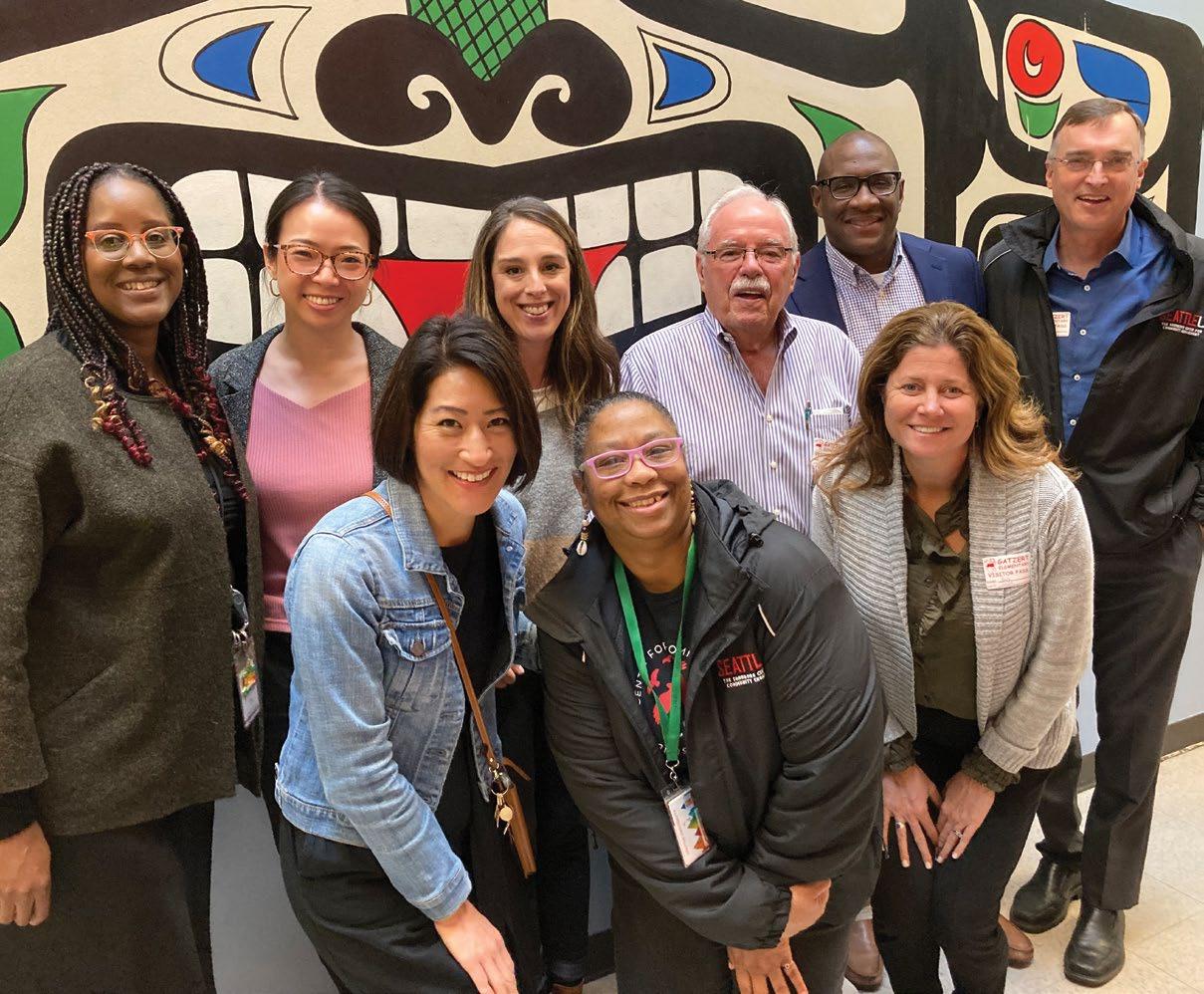
CCE Revenue: $2,709,700
2007 MILESTONE / The Center launches the First-Generation Project to support local high school students who would be the first in their family to attend college. This program was a precursor to what eventually became the Seattle University Youth Initiative.
In mid-March, hundreds of our friends and partners gathered to join in celebrating our collective achievements and give voice to the work ahead. Focusing both on campus and community, the evening was just as community-focused as the Center is and featured speakers who offered powerful reflections honoring this wonderful milestone.
One highlight of the evening was the debut of a community partner feature film created by Seattle University film students, Associate Professor Alexander Johnston and CCE staff. This project exemplifies full-circle Community Engaged Learning in action and the transformative experiences that happen at Seattle University.
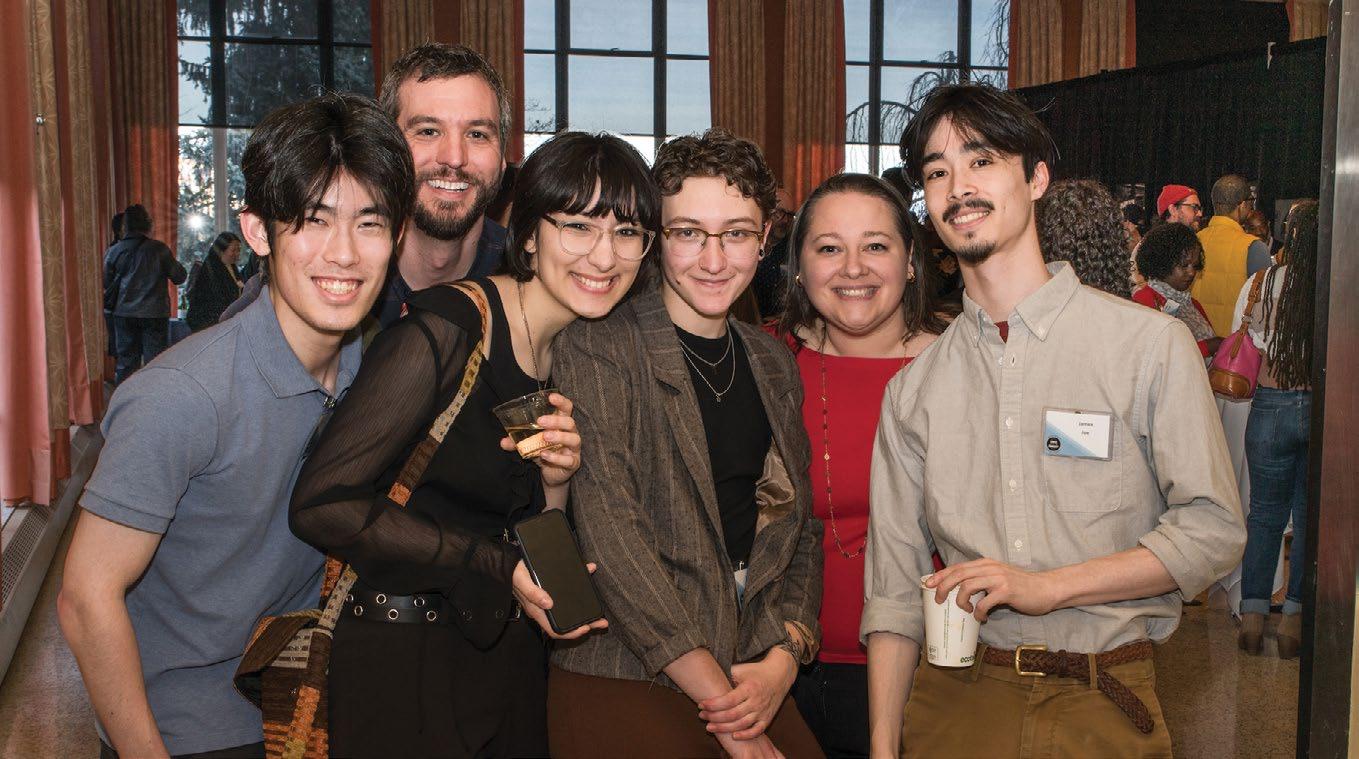
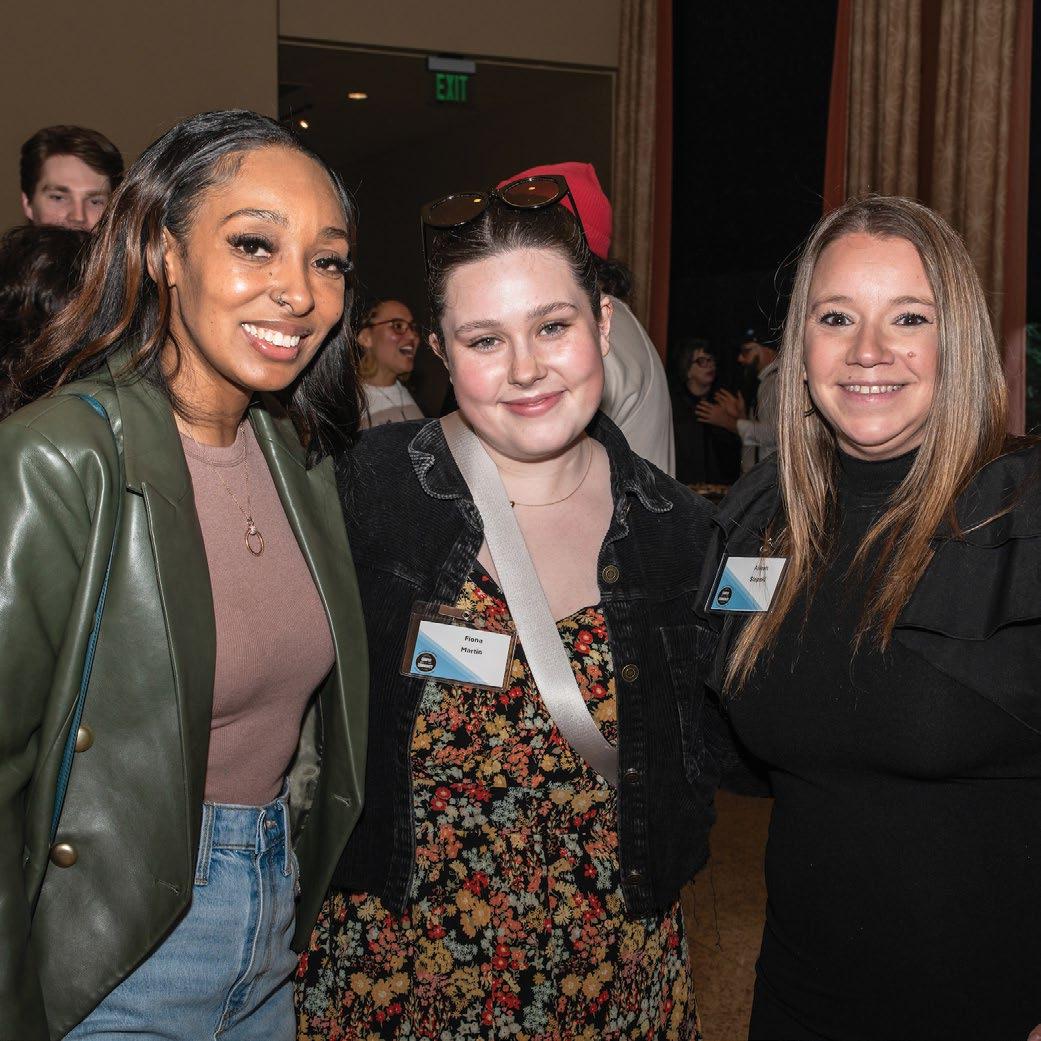
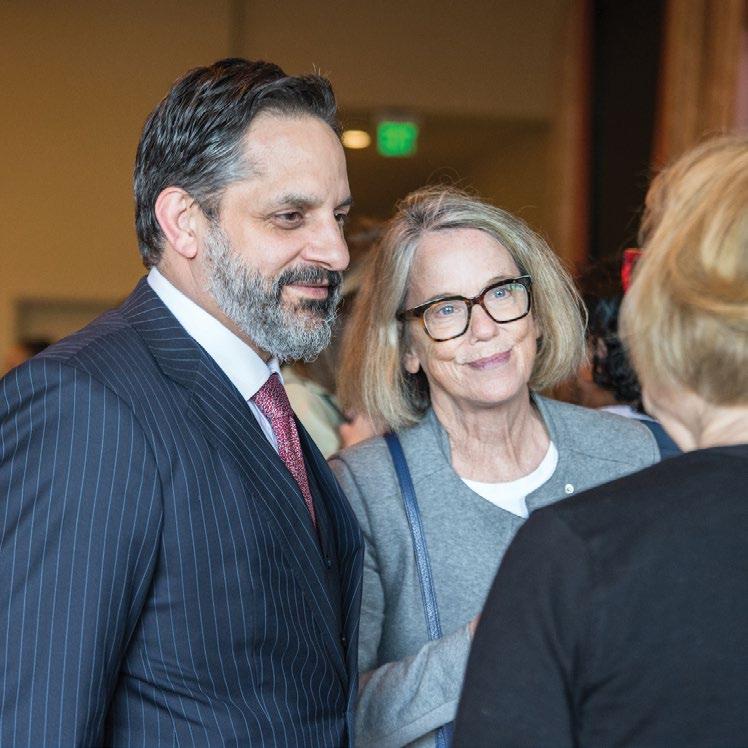
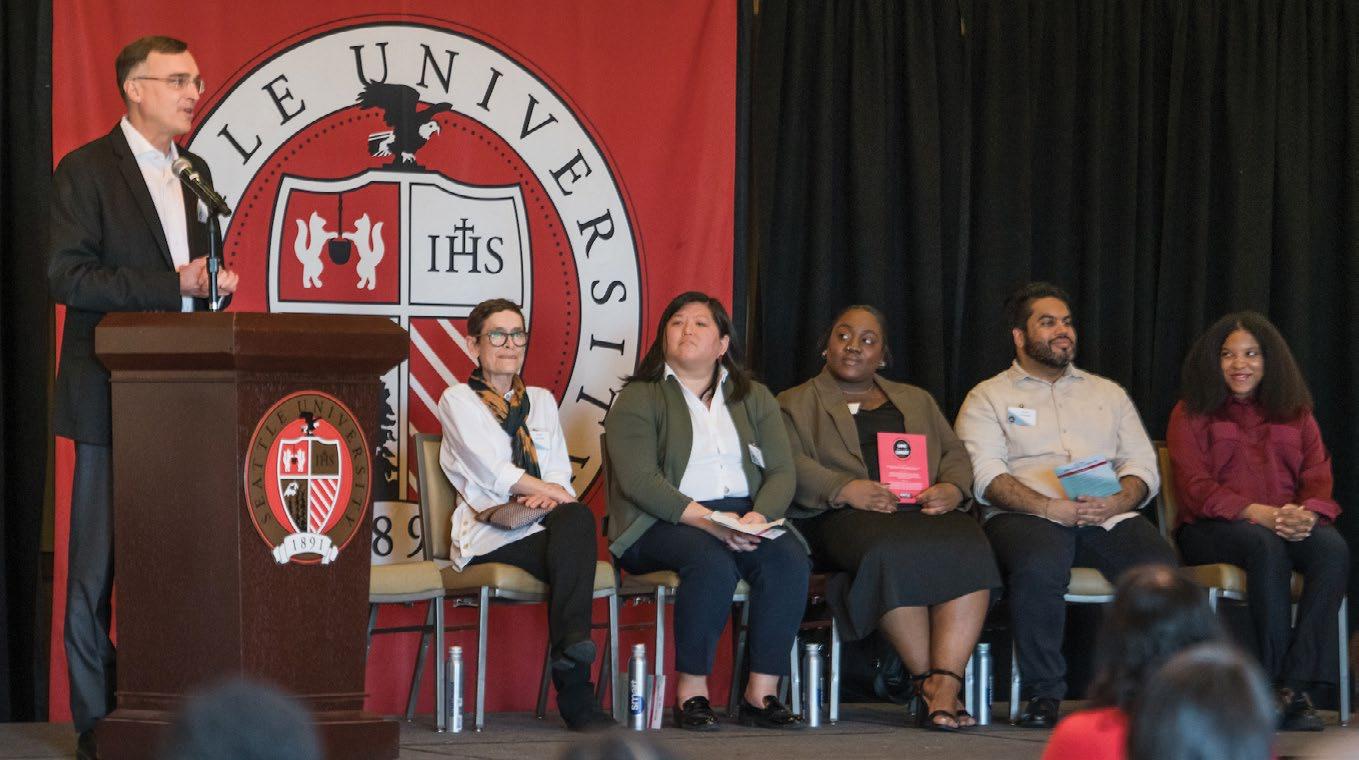
Seattle University surpasses the mark of 200 Community Engaged Learning classes.
CCE offers the first multi-day faculty/staff community immersion to learn about the Little Saigon neighborhood.
Since 2008, CCE has offered more than 20 additional immersions.
Jumpstart programs begin in partnership with CCE.
Since 2011, the Sundborg Center for Community Engagement has facilitated the Seattle University Youth Initiative (SUYI). Focusing on 100 square blocks in neighborhoods adjacent to campus, SUYI unites faculty, staff and students with youth, families, caregivers, educators and partners to co-create a “cradle to career” pathway that enhances neighborhood scholars’ academic achievement and successful pursuit of post-secondary opportunities.
Through dozens of campus and community partnerships, SUYI provides youth and families with a pathway of support for youth to succeed in school and pursue their college and career goals.
SUYI provides the SU community— students, faculty, staff and alumni alike—with opportunities to lead a just and humane world.
For SUYI to be sustainable, to grow and thrive, CCE and its SUYI partners must continue to assess and reimagine the initiative. One way we have done this is to convene a working group comprised of residents, educators, scholars, Seattle University faculty and staff to examine the current journey of the SUYI “cradle to career” pathway, generating ideas and goals for the future of SUYI. In support of pathways forward and a revised strategic plan, the working group presented their recommendations in spring 2024.
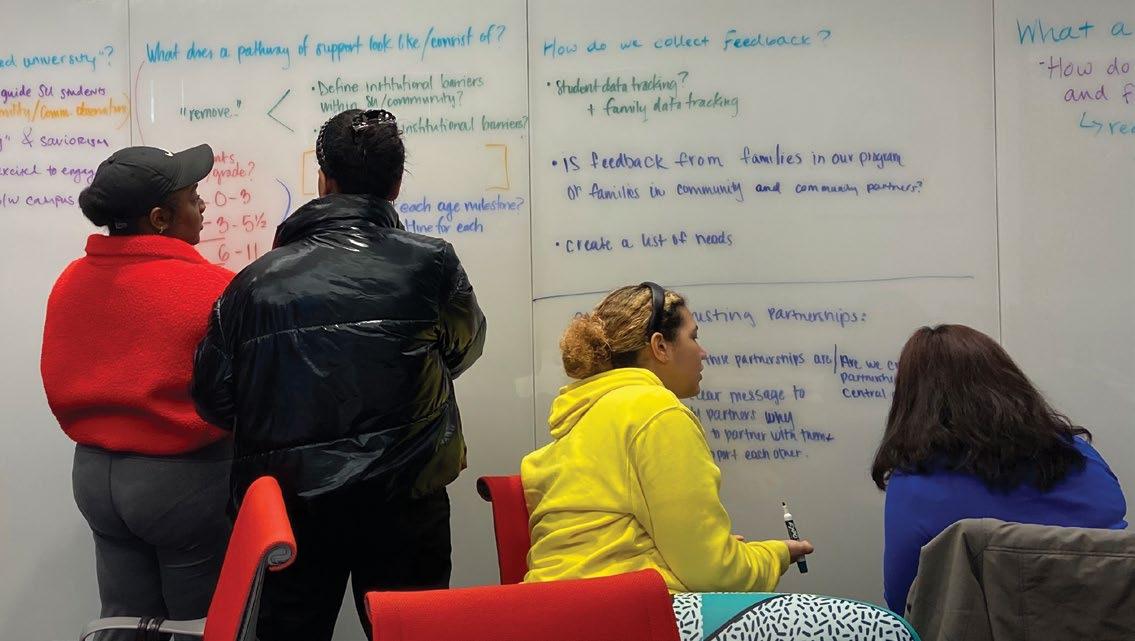
SUYI’s holistic approach includes partnering with neighborhood-based organizations and community leaders to support stable, affordable housing, access to health care, safe neighborhoods and living-wage jobs.
#1 / Pathways
Identify the look, feel and components of an educational pathway of support for SUYI scholars and families.
#2 / Partnerships
Define and describe the purpose of each SUYI partnership.
#3 / Success and Families
Define and measure the meaning of “success” for SUYI scholars and families.
#4 / Feedback
Plan, implement and share with vested partners (e.g., families and community organizations) how SUYI intends to use feedback and other data.
#5 / Engagement
Describe how SUYI is strengthening the connection between campus and the community.
2009 MILESTONES / Seattle University offers 224 Community Engaged Learning (CEL) courses—a 111% increase since the center’s inception in 2004.
Since 2009, the number of CEL courses has doubled again to more than 450 in the 2023-24 academic year.
A deep and historic partnership for CCE is Bailey Gatzert Elementary School. Named for Seattle’s eighth mayor, the proximity of Gatzert Elementary to Seattle University facilitates students’ ability to provide mentoring and support to young scholars, families and teachers. In 2004, CCE formalized a longtime commitment of connecting university resources to the Gatzert School and pledged this again in 2011 with the creation of the Seattle University Youth Initiative.
“The Seattle University Youth Initiative is a joint effort between Seattle University and the greater community here to ensure that students in this community can see the path from kindergarten through college and beyond,” shares Gatzert Elementary Principal Ronnie Belle. Belle says the impact of CCE’s work is seen and felt by all.
“We can see the through lines in the things that we do. I think Seattle U is best positioned to support us because, one, we're right there. Two, we share the same values,” says Belle. “If we want our community to be the best it can be, it’s going to take a partnership because I know that we cannot do it alone.”
As a professional in the field, Belle points out how CCE’s programs connect the dots with consistent curriculum and family inclusion. “We have at Gatzert a robust afterschool program due to Seattle U,” says Belle. “We look at the construct that is being taught during school. We make sure that the same constructs are being taught after school.”
Recent statewide Smarter Balance Assessment (SBA) test scores agree, showing a 34% increase in grade level proficiency at Gatzert over the past five years, according to Belle. “Seattle U’s presence makes a difference in our academics, but the difference is also impacting the people who we have coming to the building,” Belle says, excitedly. “My students are seeing people from all over, people who look like them.”
In the future, Belle would like more of his students to attend Seattle University for their post-secondary education. “I would like to see my students from Bailey Gatzert coming here to SU... I think (it) would be so awesome because then they can actually see the through line themselves.”
213 SUYI SCHOLARS INVOLVED IN PROGRAMMINGYEAR-LONGCONSISTENT
CCE PROGRAMMING
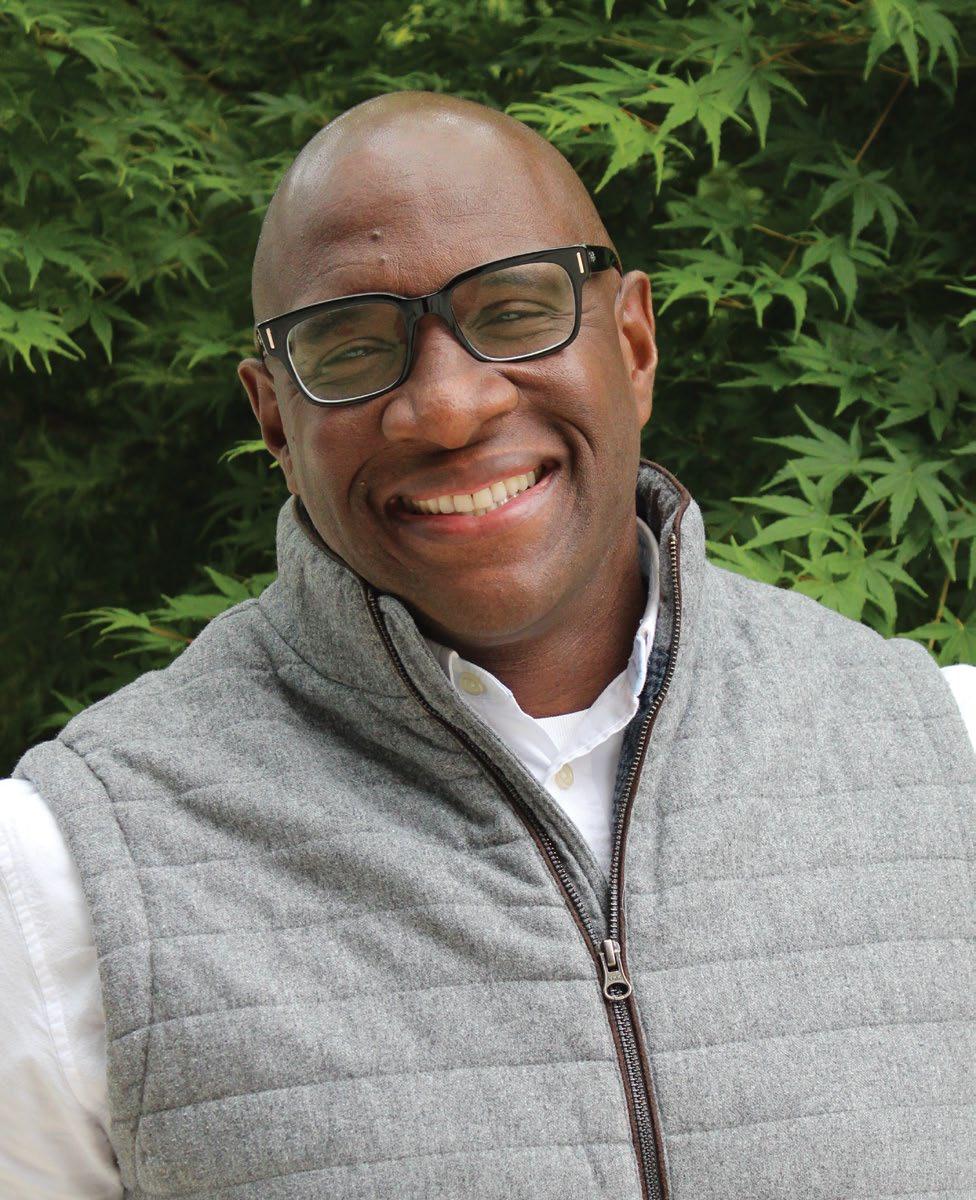
The planning process for the Seattle University Youth Initiative culminates in an organizing conference on May 11, 2010.
The Children’s Literacy Project merges with CCE, incorporating K-12 support in the SUYI zone. 947
This program partners with families, teachers, administrators and care providers to ensure children, birth to age five, are ready to flourish in kindergarten. Program highlights this year include:
• Registering 13 families for kindergarten and hosting four events in support of kindergarten enrollment.
• Facilitating a Community Partner Learning Circle with 23 attendees at Denise Louie Education Center and a Community Learning Circle with 36 attendees at Gatzert Elementary School.
• Creating 15 Welcome Baby kits for Denise Louie families and providing 50 Pre-K activity backpacks to prevent summer learning loss for Bailey Gatzert families.
This inclusive program works with families to foster inclusion and support so families and scholars can thrive. Program highlights this year include:
• Partnering with Seattle Housing Authority (SHA) to provide a 12-week ESL class to 25 families, plus in-class support, childcare and dinner.
• Engaging 30 families in a new program “Dance with Yui,” led by SUYI Education Connector Yui Dhevaraj.
• Hosting four weekend field trips this year for families including a Cirque du Soleil show and three Seattle Sounders soccer games. Offering 19 additional field trips for Pre-K through 8th grade scholars including Kids Day at SU Women’s Basketball, bowling, skating, hiking, visiting historical spots and museums throughout Seattle, plus an overnight trip to IslandWood camp.
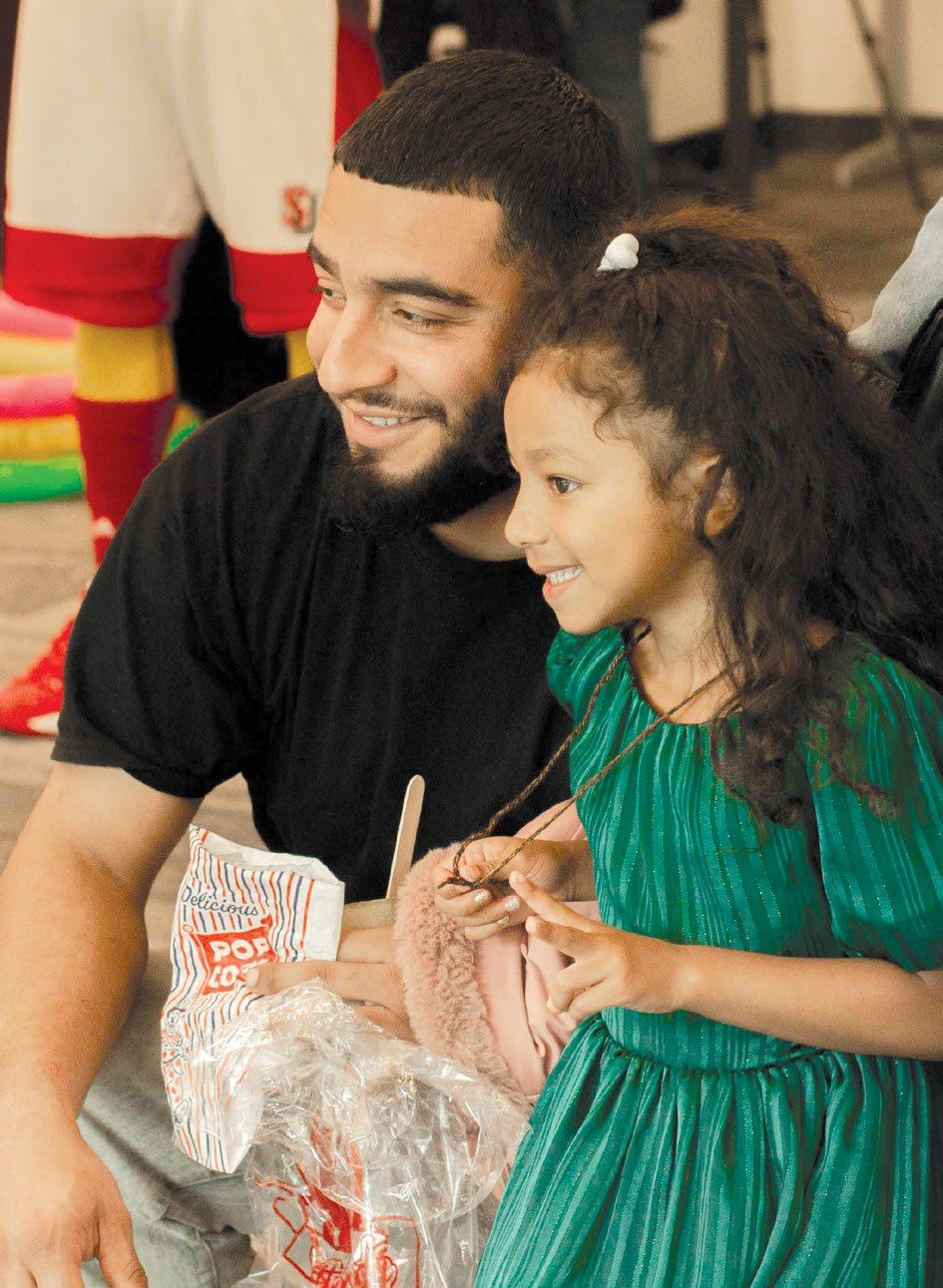
This nationwide program recruits and trains Seattle University students to support preschool children in underserved communities. Program highlights this year include:
• Recruiting, training and placing 41 Corps members. Thirty seven students completed a service term and SU’s student staff retention rate was 90.24%—one of the highest in the nation.
• Hosting a Literacy Carnival for 20 Jumpstart families which featured eight activity stations and additional games hosted by SUYI’s Family Engagement and Early Learning Connectors.
The Seattle University Youth Initiative begins. CCE hires the first Bailey Gatzert School Success Coordinator, a community-based staff to lead engagement during the school day and afterschool programming with young elementary scholars.
• Placing three Jumpstart teams in the new Denise Louie Education Center (DLEC) classrooms at their 13th and Fir location, two teams at Bailey Gatzert School and one team at the Yesler Terrace Chinese Information and Service Center (CISC) classroom.
The Redhawk Academic Mentoring Programs (RAMP) at Bailey Gatzert partners with teachers, school administrators and staff to provide students and families with academic support, social-emotional learning (SEL) and enrichment activities. Program highlights this year include:
• Mobilizing 26 Seattle University student mentors to provide 17 classrooms with in-school support and creating afterschool programming for 38 Gatzert scholars.
• Building meaningful relationships between mentors and scholars and tailoring the afterschool program curriculum to scholars’ interests and needs.
• Improving the mentors’ leadership, teamwork, communication and problem-solving skills and encouraging them to embrace challenges with a growth mindset to learn alongside the Gatzert scholars.

The Redhawk Room/RAMP at Washington Middle School (WMS) works alongside scholars and families to build authentic relationships and promote educational justice. Seattle University students provide educational support during and after school, social-emotional and academic mentoring and teacher support. Program highlights this year include:
• Providing a safe, inclusive space for connection and community to more than 400 people each week. Scholars visited the Redhawk Room to participate in mentoring or to take a break. Educators also stopped by to partner with mentors and connect with students.
• Mobilizing 13 SU mentors to offer weekly mentoring sessions to 47 scholars and supporting nine classrooms.
• Training mentors in emotion coaching and infusing Social Emotional Learning (SEL) into their work with scholars. One scholar summarized the success of this approach by sharing, “It’s chill in here. I feel safe.”
This high school cohort-based program supports academic aspirations through tutoring and mentoring connections, test preparation, personal awareness and commitment to a full-tuition scholarship to SU. Program highlights this year include:
• Offering consistent programming and support to 30 Garfield High School students in grades 9 through 11.
• Hosting the Second Annual Spring Summit which engaged scholars and families in conversations about life after high school.
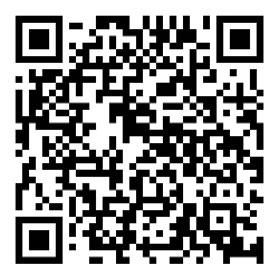
WATCH THE CHANGE MAKERS PROGRAM VIDEO HERE
2012 MILESTONES / CCE is selected to work with Yesler Terrace as the education partner on the multi-year Choice Neighborhood Grant through the federal Department of Housing and Urban Development.
CCE is also awarded President Obama’s National Award for Community Service. CCE Annual Report 2024 / 9
This year, CCE:
• Facilitated 31 professional development opportunities on community engagement for Seattle University faculty.
• Supported 10 faculty fellows as they developed new CEL courses.
• Funded nine faculty teams to permanently embed CEL in their curricula.
Seattle University’s commitment to sustaining Community Engaged Learning arises from the effort to reimagine and revise the curriculum. As part of the curriculum effort, this year the Community Engaged Learning Working Group comprised of faculty, CCE staff and community partners began the work of implementing the goal that all Seattle University students have a high-quality CEL experience. This includes:
• Launching a design team for a new Signature Seminar course that will prepare all incoming students for civic and community engagement in Seattle.
• Developing plans to fully utilize Redhawk Impact, an application that facilitates campus-community partnerships and captures university-wide data on the impact of SU faculty, staff and students.
• Conducting a national scan of other institutions to inform the development of a new CEL designation process that will increase the visibility of CEL to current and prospective students and employers.
2023-2024
CEL by the Numbers
2/3 OF SEATTLE U GRADUATES
More than 100,000 hours of direct service to Seattle communities
CCE has hosted 113 CEL faculty fellows since 2005
2013 MILESTONE / CCE partners with other organizations to create the Yesler Community Collaborative (YCC), convening local organizations to preserve neighborhood character and culture.
Creating high-quality Community Engaged Learning courses requires the dedication of innovative faculty and staff. However, to sustain these transformative courses for the long-term, academic programs and departments must work together— along with their community partners—to create lasting commitments by embedding CEL in their curricula.
This year, CCE funded nine faculty teams to work together to do just that. Cecilia Morales, CCE's Senior Director of Campus and Community Partnerships and Biology Professor and CCE Faculty Associate Lindsay Whitlow met monthly with department representatives to discuss topics such as developing and institutionalizing partnerships, sustainability and transition planning and fundraising for engaged efforts. Here are some highlights from the first annual Engaged Department Mini-Grants:
• The Nonprofit Leadership program convened an advisory council of nine community partners and five program alumni to produce shared principles for their practicum requirement and draft a plan for a new Board Fellowship Program.
• Two departments—Visual Arts and Film Studies—worked together to pilot a new initiative to link three CEL courses with shared community partners for three consecutive quarters, resulting in deeper support for partners and rewarding learning opportunities for students.
• The Social Work program empowered undergraduate researchers to hold focus groups and informant interviews with 24 students and eight community partners, leading their department to more intentionally integrate preparation for CEL in their undergraduate and graduate curricula.
“The CCE’s support was invaluable. In particular, the very nature of the grant—to support learning, connection and planning—met our department where it was at and allowed it to establish realistic goals for curriculum development.”
Sam Harrell Assistant Professor of Social Work

2014 MILESTONE / “Serve Local” is launched as an SU student campaign, placing more than 300 students annually via student employment, CEL and volunteer positions.
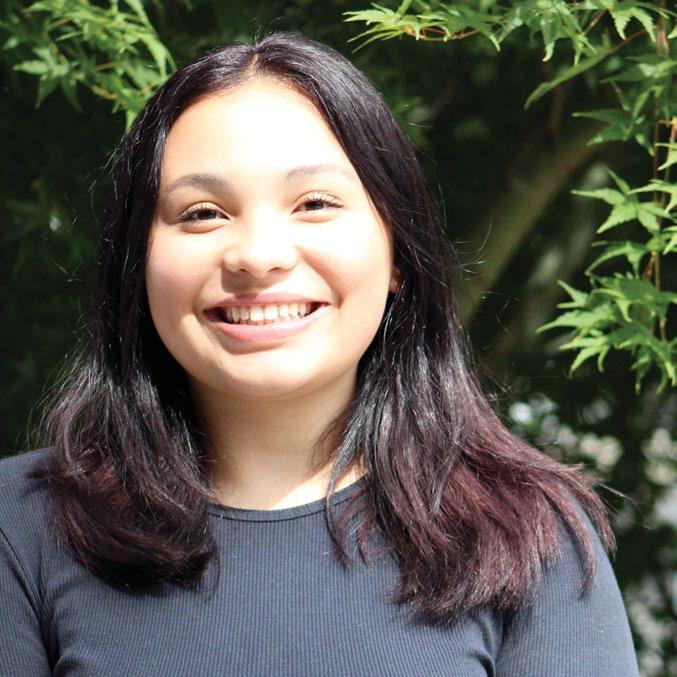
Humanities for Teaching major, specialization in K-8
CCE Connection: Student Office Assistant
Hometown: Bellevue, Wash.
“Since coming to SU, I have become more confident in not only my identity but also the positive impact I can make in the world around me when I stay true to who I am … I am passionate about helping those around me find community and connection through projects and events … I am the historian/public relations for MECHA (Movimiento Estudiantil Chicano de Aztlán) and am part of the Matteo Ricci Institute.”
“A favorite memory was planning my first CCE event. Not only was it fun to bring an idea to life but also to see those who attended have a memorable experience with it ... Working with Sabrina Alex (CCE Operations Manager) has taught me how powerful a genuine presence that leads with humanity can be within a community. Working with her, I have been able to see not only my own growth and confidence that she has helped me step into but also every single person she interacts with … My hope is to continue stepping deeper into my passions by working more with the different areas in the CCE.”
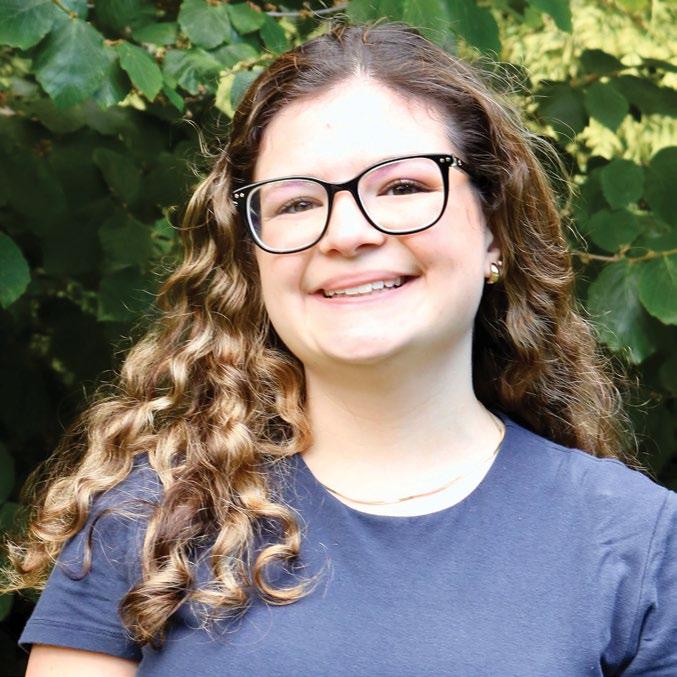
Business and Law major, Global Business minor
CCE Connection: Jumpstart Team Lead
Hometown: Boulder, Colo.
“I am passionate about nonprofit organizations, education law and linguistics and can often be found reading with a cup of tea. A piece of wisdom I would share with younger students is to join a community on campus. Finding a community helps create an overall sense of belonging and support.
“Some experiences that have shaped me as a leader are my role as a team lead, including running Craft Night for Jumpstart students every Thursday night. Someone on campus who left an impression on me is Sabrina Alex (CCE Operations Manager), who always inspires me with her smile and willingness to listen when I have had a bad day. She always strives to create an environment that supports and encourages students to thrive … My hope for the CCE is that it will become better known across campus and that it can connect with more classes on Community Engaged Learning.”
The first Place-Based Summer Institute is held at Seattle University to share best practices for hyper-local strategies of community engagement. It evolved to become the Place-Based Justice Network, now with more than 35 participating colleges and universities and currently headquartered at the University of San Diego.
One of CCE’s aims, reflected in our 2030 Vision, is that our community partners will feel connected to Seattle University and see the university as a part of and responsive to the community. To measure this, this year the Center worked with Dr. Erica Yamamura, a higher education consultant and former Seattle University faculty member, to develop a survey that measured our partners’ satisfaction with our shared work. The survey’s findings included the following:
• 95% of respondents feel connected to SU
• 95% agreed that SU is an asset to the community that surrounds it
• 95% said their work with SU is mutually beneficial
• 87% said their work with SU has increased their connection to other organizations
• 90% agreed that SU’s partnership benefits their capacity to fulfill their organizations’ mission
• 84% agreed that their organization’s work with SU has allowed them to develop or deepen a collaborative commitment to social justice
• 95% said their work with SU is sustainable
CCE’s 20th Anniversary film featured three community partners. Our student film crew sat down to learn more about our neighborhood partners Bailey Gatzert Elementary School, St. Francis House and Byrd Barr Place. Watch the film here:
30%
Speaking of sustainability, of survey respondents have worked with Seattle University for more than a decade. Cheers to 20 more!
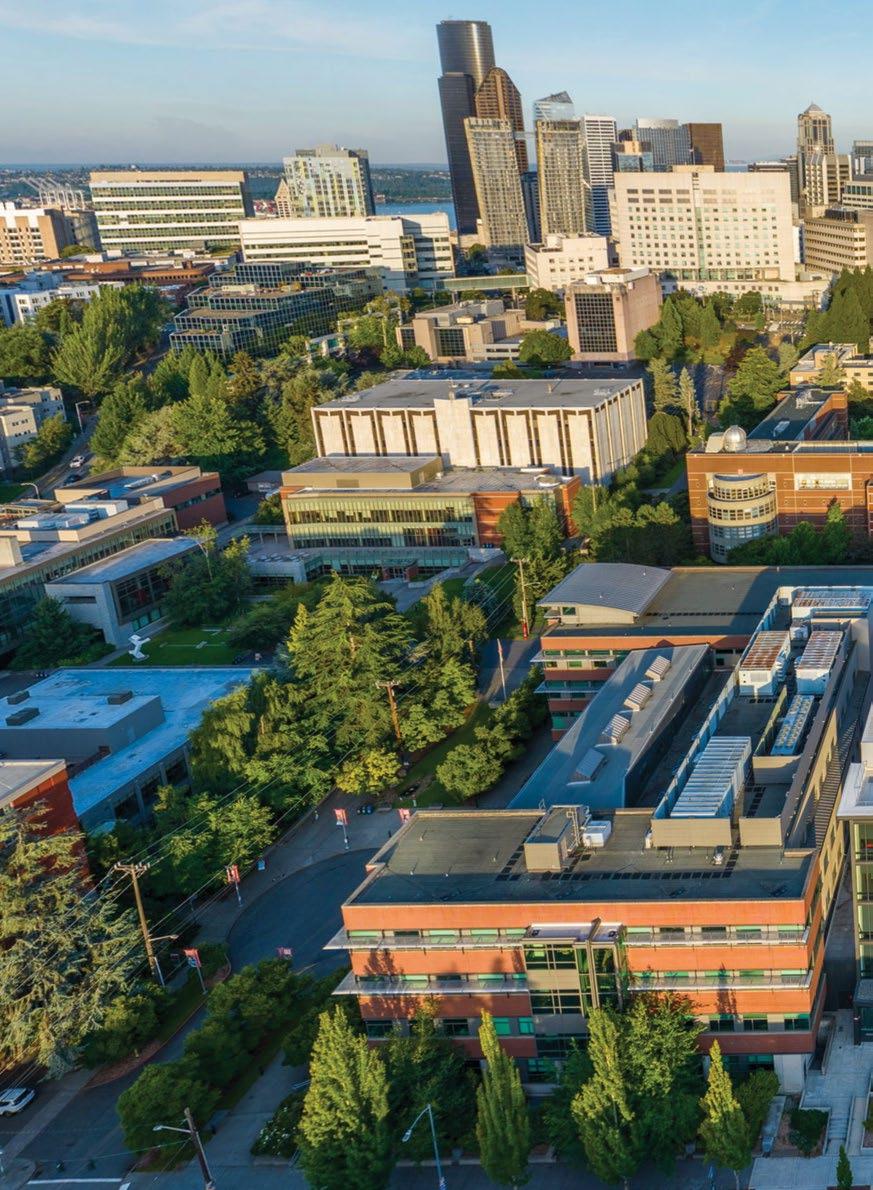
2016 MILESTONE / The Center expands the Youth Initiative by launching the Redhawk Academic Mentoring Program (RAMP) at Washington Middle School.
Not far from Seattle University is Hilltop House, an independent living community for adults, age 62 and older. Committed to providing quality, affordable housing in a safe and welcoming space, it strives to make a difference by presenting opportunities that foster mutual respect and promote an active, meaningful lifestyle, along with a strong sense of community among its residents.
A key force behind this work and partner to CCE has been Karen Carlos, who retired in spring 2024 after partnering with CCE for 20 years. “Community is not a thing, but rather a feeling or sense of belonging to something greater than ourselves,” says Carlos, the former Hilltop Director of Community Engagement. “Relationships and respect are the core of community and therefore community equals a group of people that care about each other and feel they belong together.”
Hilltop House first partnered with CCE in 2004, when Carlos was still relatively new to the organization. “When we first partnered with Seattle U, I felt that Hilltop was standing alone on First Hill,” she recalls. “It was difficult to find ways to reach out in the community to make meaningful connections for our residents. I was grateful to learn about the (then called) service-learning program at Seattle U. It was a win-win situation. SU students were helping residents with tasks and activities and residents were helping students learn about connections, interactions and the importance of service. I love the energy, creativity, and enthusiasm the students bring to our community.”
After 20 years of partnership, Seattle University students are still regularly connected with the residents of Hilltop House through courses and Community Engaged Learning experiences.
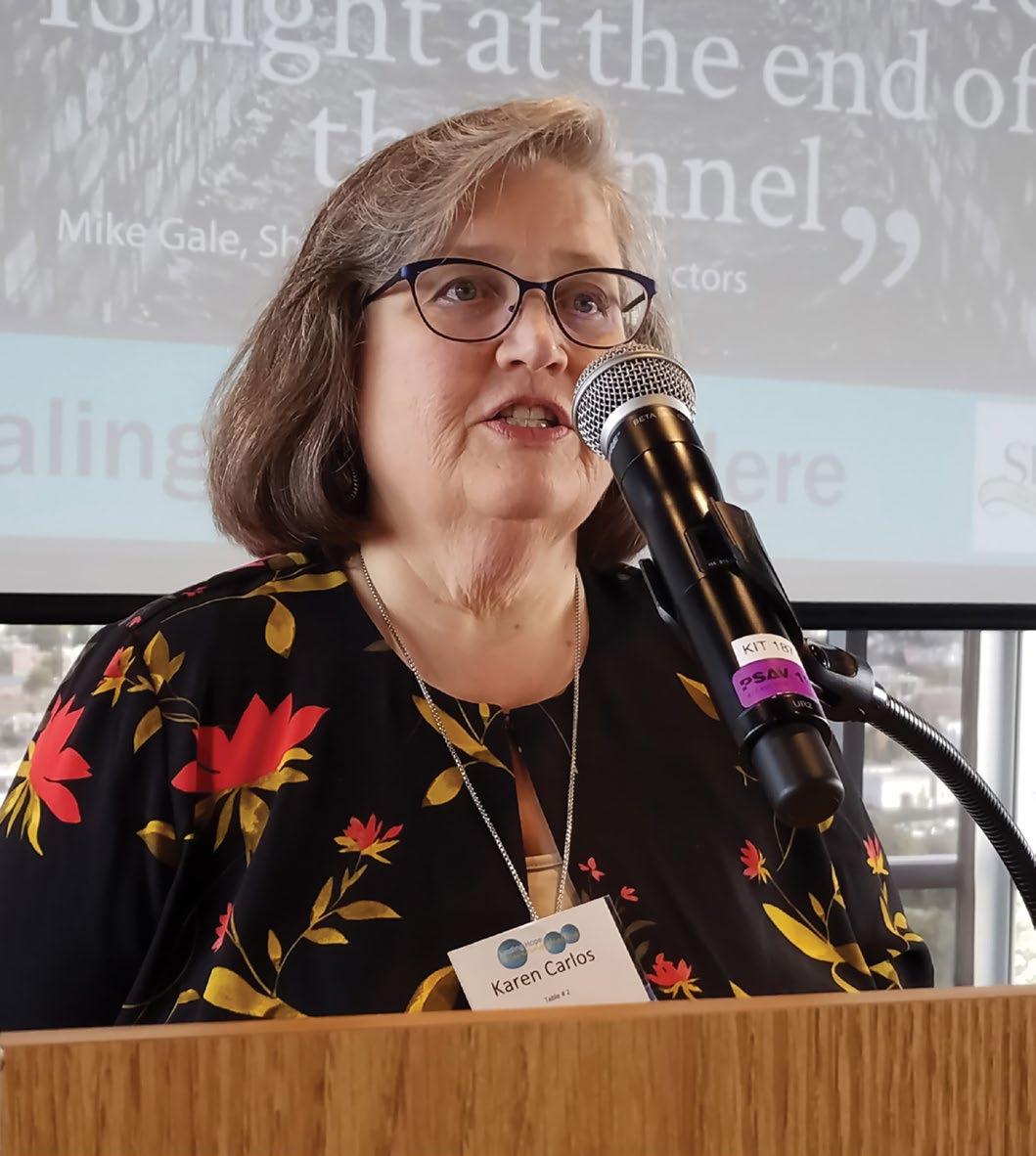
“Community is not a thing, but rather a feeling or sense of belonging to something greater than ourselves.”
Karen Carlos Former Hilltop Director of Community Engagement
2017 MILESTONE / CCE deepens its focus on anti-racism and releases the statement, “Living and Leading as an Anti-Racist Organization.” All Seattle U student volunteers in Seattle Public Schools are required to attend training on racial equity.
This year, the CCE was named lead partner for the Yesler Terrace Legacy Commitment, working in close collaboration with the Seattle Housing Authority (SHA) and the Seattle Foundation. A key element of the ongoing redevelopment of Yesler Terrace, the Legacy Commitment will offer long-term support to Yesler Terrace residents. The goal of this new effort is to create sustainable opportunities for SHA’s Yesler Terrace residents focusing on academic success for children, positive youth development, job opportunities and advancement, health and strong social networks.
CCE’s long history of facilitating the Seattle University Youth Initiative which has included supporting the children and families of Yesler Terrace, making CCE a natural fit to lead this effort.
“From the earliest planning phase, the vision and values for redevelopment of Yesler have included building not just buildings but community. Seattle University embraced that concept and helped make it a reality, especially in the area of academic and social development of the young residents of Yesler,” says SHA Executive Director Rod Brandon. “Seattle University and the Sundborg Center for Community Engagement have nurtured a generation of high-achieving, successful students supported by healthy families. As our longtime partnership continues, we’re excited that SU will help carry that legacy forward for future generations.”
The Legacy Commitment is community-driven and a powerful way for residents and community partners to collectively influence goals, decision-making and outcomes. Broad community engagement will be guided by a committee comprised of four Yesler Terrace residents plus one representative each from SHA, CCE and the Seattle Foundation, mirroring strong communitybuilding programs in other SHA communities.
“The partnership between Seattle University and Seattle Housing Authority nourishes robust service delivery and community empowerment.”
Rachael Steward
Deputy Director, Dept. of Housing Operations at Seattle Housing Authority
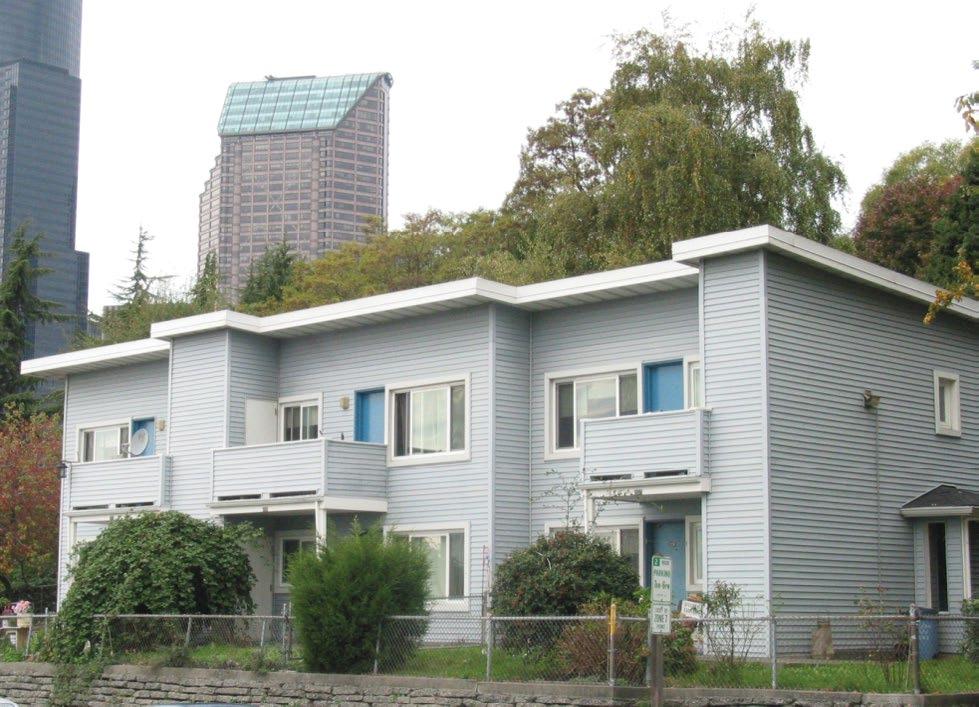
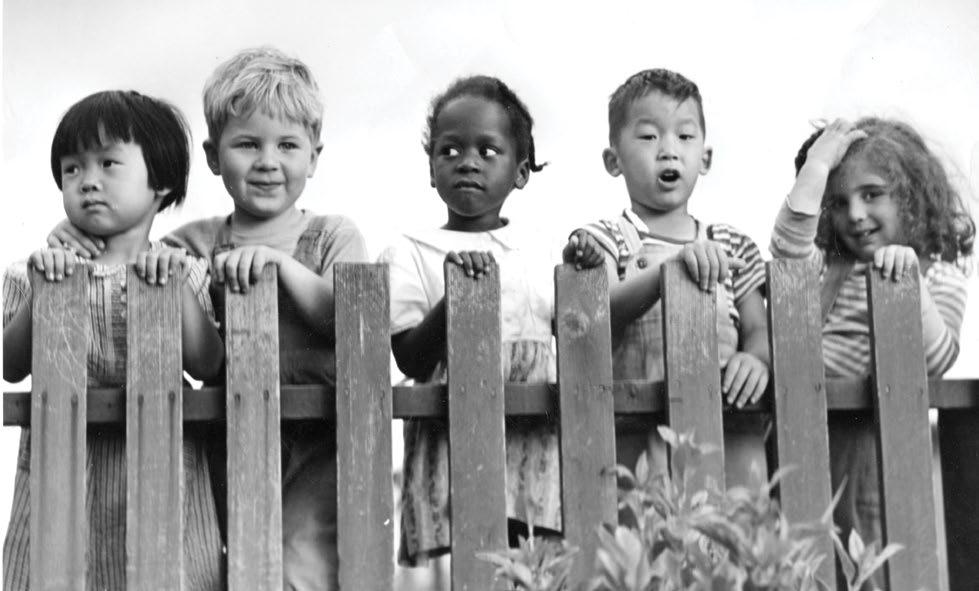
2018 MILESTONE / Jumpstart reaches 100,000 service hours in 10 years.
Our vision: By 2030, CCE will transform Seattle University’s relationship with central Seattle by expanding trusting partnerships and deepening learning to advance justice, remove institutional barriers and educate change makers.
By 2030, Seattle University and its community partners will provide a culturally relevant pathway of support for 1,000 neighborhood youth and their families in at least one activity and 500 youth in year-long activities. The objective of these efforts is to enhance scholars’ social, emotional and academic growth, plus achievement and successful pursuit of post-secondary opportunities.
As a result:
• Neighborhood scholars who participate in Seattle University Youth Initiative programming will have an increased sense of belonging in their academic setting and more confidence in their ability to thrive in life and in their academic careers.
• Caregivers will have greater confidence in how to support the social, emotional and academic growth and development of their scholars, as well as their ability to thrive in life and on their academic journey.
• Forty neighborhood scholars will be pursuing their undergraduate degrees at Seattle University.
By 2030, all Seattle University students will have a high-quality Community Engaged Learning experience and robust opportunities for co-curricular engagement.
As a result:
• Seattle University students will feel better connected to the Seattle community and have an enriched educational experience.
• Seattle University students will achieve greater personal and academic gains, leading to increased retention and graduation rates.
• Seattle University graduates will be more prepared to positively contribute to the workforce and lead for a just and humane world.
• Community partners will feel better connected to Seattle University and will see the university as a part of and responsive to the community.
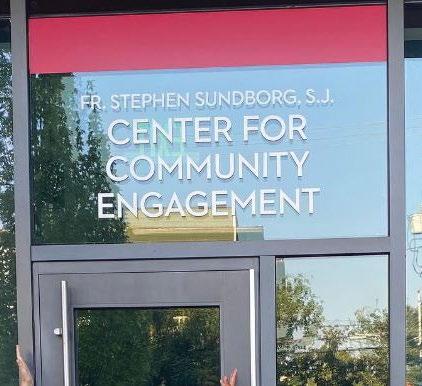
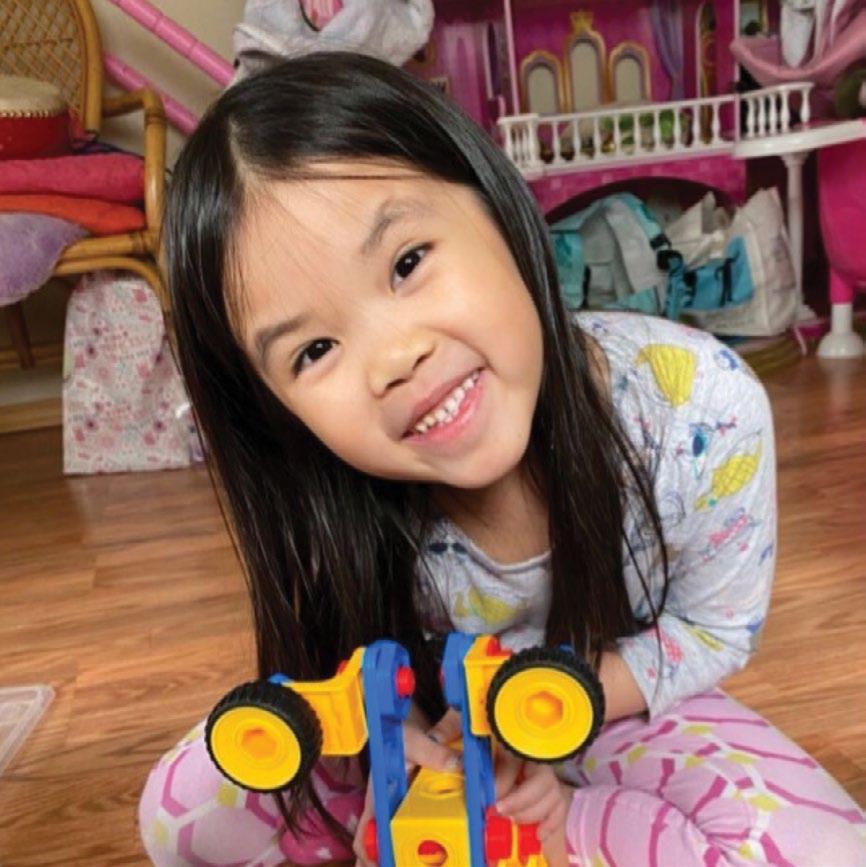
2019 MILESTONE / CCE Executive Director Kent Koth partners with SU College of Education’s Erica Yamamura to publish Place-Based Community Engagement in Higher Education.
By 2030, Seattle University will be a hub for campus and community leaders to incubate and implement solutions to the complex challenges facing Seattle.
As a result:
• Dozens of campus departments will work alongside local residents, institutions and organizations through long-term reciprocal partnerships.
• Seattle University’s local and national reputation for high quality academics grounded in solving real world issues will increase.
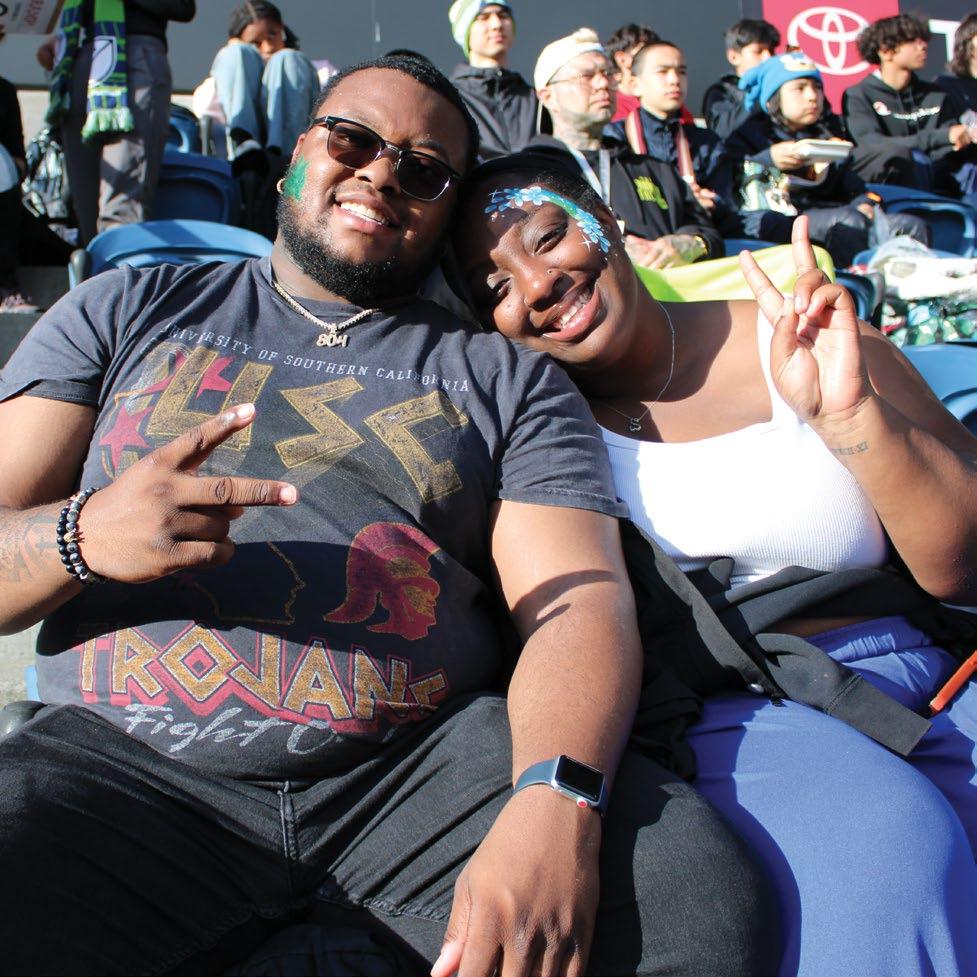
By 2030, CCE will enhance the operational systems that support the people, processes, policies and technologies needed to attain the goals of the CCE 2030 Strategy and position the CCE for future work, while growing and strengthening a commitment to antiracism.
As a result:
• CCE staff will be equipped to support and empower campus and community partners, work collectively as a team and grow professionally and holistically as individuals.
• There will be a long-term financial and funding plan that ensures the continuity of our work.
• There will be systems in place that allow CCE to powerfully communicate our work through storytelling and data using community design and leadership when possible.
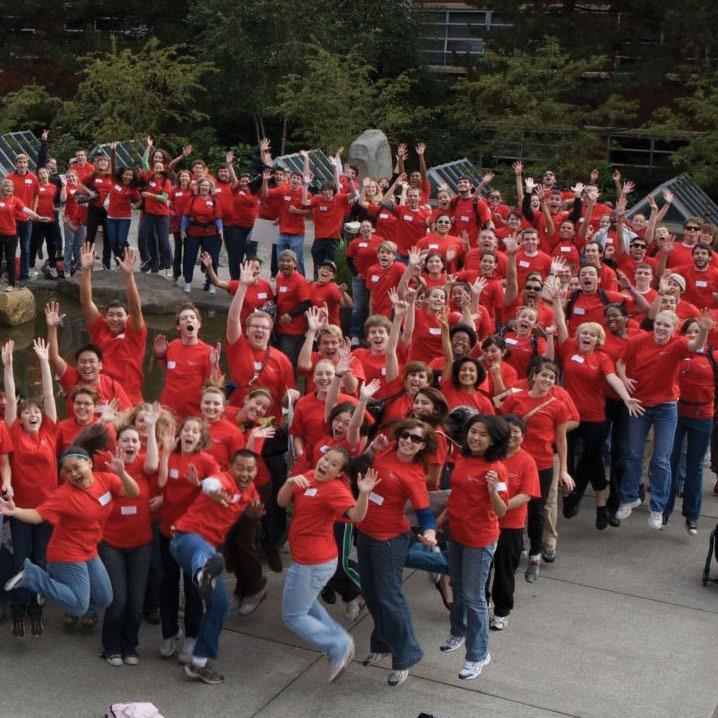
2020 MILESTONE / The COVID-19 pandemic means a pivot but CCE remains connected to campus and community through technology and virtual opportunities.
In 2010, Erin Proctor was a regular at the Rotary Boys & Girls Club. Like many 14-year-olds, she enjoyed playing basketball with friends and connecting with her community. One afternoon, a club staff member named Sammy Sevilla—an undergraduate student at Seattle University—invited Proctor and her family to campus for an event that welcomed the community to campus to share their stories and provide input about the local neighborhood in order to guide the development of the Seattle University Youth Initiative (SUYI). This May 2010 event became a pivotal moment to the creation of the Youth Initiative.
Proctor prepared a speech with encouragement from Rotary members and others, then shared her thoughts with a packed Campion Ballroom full of strangers eager to hear her story. Proctor offered inspiration and insight to the 300 people gathered for the event. “It was an important thread in the tapestry of my life,” Proctor recalls.
She couldn’t benefit directly from the early stages of SUYI, but she did share her vision of what her community could become for local young scholars and their families. That spirit of community support and creating pathways ushered Proctor through middle school and on to Franklin High School, before her pursuit of a post-secondary experience at Langston University in Oklahoma.
“I was looking at HBCUs and the closest HBCU is in Oklahoma, in the middle of nowhere,” Proctor says. “My uncle went to Langston and taught at Franklin while I was there. So, a recruiter came up and he would chat with students about their grades and activities. Then they offered me a scholarship with free room and board and that sounded like where I was going.”
Proctor’s initial interest was to study Public Health but shifted to Health Care Administration on the guidance of a college advisor. During summer and holiday breaks back home in Seattle, she worked with the UW Medicine Float Pool as part-time/temporary staff, earning Seattle wages that helped her navigate the significant differences in cost-of-living between the two cities. This experience helped Proctor make connections leading to her current role as the Vaccine Program Coordinator for Odessa Brown Children’s Clinic.
Though Proctor now lives outside of the neighborhood she returns several times a week for work. Much has changed due to gentrification, she says, but it’s still all about the people. “Community is those people around you that support you and protect you because they see your goals and they just want to make sure that the best is there for you.”
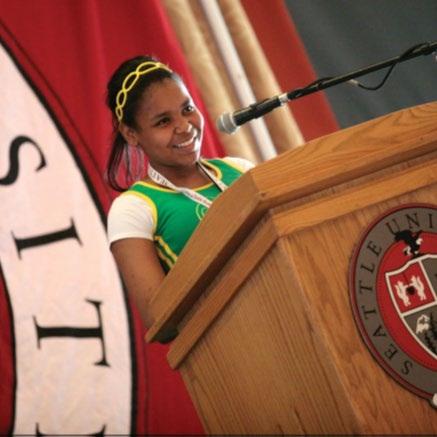

CCE leans into technology with the world, shifting programs to a hybrid model including an innovative hybrid mentoring program.
CCE moves into its new home at the Sinegal Center for Science and Innovation building and the center is renamed in honor of former President Stephen Sundborg, S.J.

Professional Staff
Sabrina Alex, ’21
Nakiya Baker, ’19
Emily Bergstrom
Sarah Hernandez-Torres, ’21
LaKesha Kimbrough
Kent Koth
Gia Ledesma
Robin Lesh
Stephanie Lewis
Liz Lin
Hannah Mitchel-Gevirtz, ’23
Cecilia Morales
Aileah Slepski
Makaelah Smith, ’18
Nicholas Stubbs
Lupita Torrez
Braden Wild, ’18
Fund Development
Advisory Board
Carol Ann Barnickol, ’64
Gretchen Brennan
Sean Brennan
Laury Bryant
Val Gorder
Maureen Lee
Katie Renschler, ’96
Ruth Tressel
Community Advisory Board
Evelyn Allen
Rod Brandon
Rivka Burstein-Stern
Dwane Chappelle
Val Gorder
Rodney Hines
Jaime Lee
Eduardo Peñalver
Susan Yang
Campus Advisory Board
Deborah Ahrens
Nick Ames
Charisse Cowan Pitre
Butch de Castro
Jen Schulz
Kathryn Troxel
Lindsay Whitlow
2022 MILESTONE / Change Makers launches with tuition commitment for local young scholars.
2023 MILESTONE / Program participation and connections surpasses pre-COVID levels.
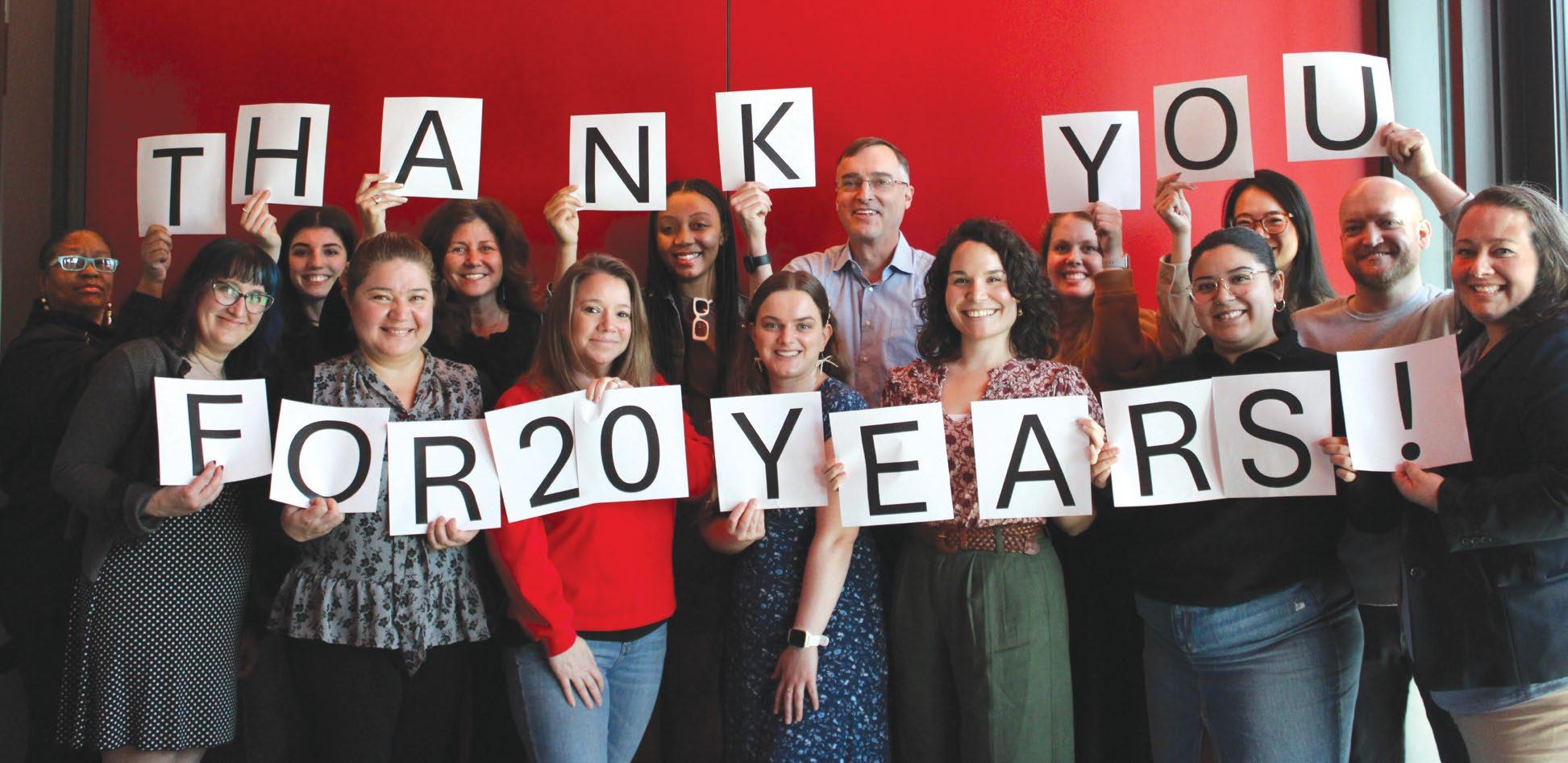
SUNDBORG CENTER
EMEN T 2024 MILESTONE / CCE Celebrates 20 years of Connecting Campus & Community and wins “Best Place to Work on Campus” from Student Employment!